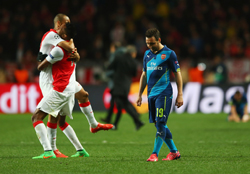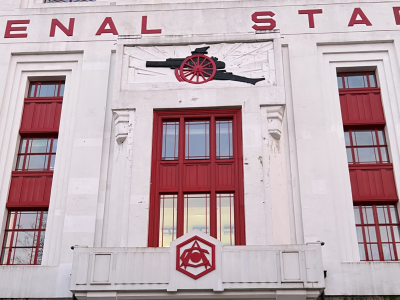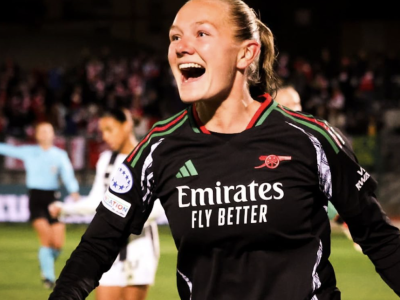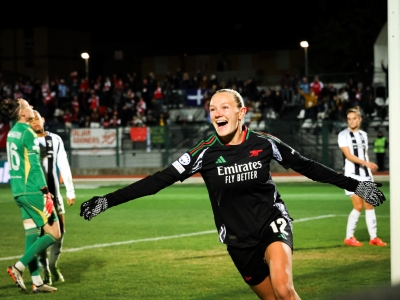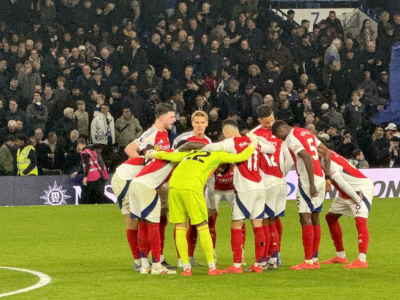This article is not intended to be a debate on what internal factors led to us losing to Monaco, but how to game manage the first leg at home in two legged European matches.
How do you manage the game when going behind in the first leg at home, and is the perceived strength of the opposition a deciding factor?
When Monaco scored their third goal in the dying moments of the home leg it left Arsenal with a mountain to climb in the return fixture. The goal came when Monaco broke away with most of the Arsenal team caught upfield pressing for an equaliser. Many observers criticised the team for their gung ho approach to scoring an equaliser, and with the benefit of hindsight they all suggested that it would have been more professional to have accepted a 1-2 score line and attempt to make up the deficit in the away leg. No doubt those same people would have waxed lyrical if we had managed to win the tie.
But what of the fans? Is anyone seriously suggesting that having just scored and with the momentum a goal brings, we would have been happy to see the team retreat and play out the final minutes happy to lose. As I recall most of us were urging the team forward in the hope of an equaliser. Did the fact we were playing a team many thought we should have beaten add to the desire to equalise, and would we have done the same thing against Barcelona or Madrid?
Arsenal going behind in home European game is hardly new occurrence, but every year we seem to compound the problem by conceding further goals when chasing the game. Is it time to adopt a new strategy and shut up shop if we go 0-1 down? Is the risk of conceding a second away goal greater than the benefit of scoring an equaliser?
For me the problem lies in the perception of playing at home in the first leg. Many people regard this as a disadvantage, and as a result believe it is essential to win the game or face almost certain elimination. Because of the unique nature of the away goal rule if we fail to win, a 0-0 draw is far more favourable than a 1-1 or 2-2 etc. With this in mind does a clean sheet becomes almost as essential as a win, and should we go against type and play a defensive game at home rather than risk an away goal?
As with everything in life timing is crucial. If we go behind early on in the game, there is still plenty of time left to change the outcome, and continuing to play a normal game would be what most people expect. The problem occurs when we approach the end of the game still behind, and a certain amount of urgency enters our play. Although this is what the fans want to see, and the actions of the players seem to agree, it does leave us vulnerable to a counter attack and the dreaded second away goal. What seems to be forgotten is that this is a two legged contest, and going to the second leg one goal behind is infinitely preferable to being two behind. Maybe a more conservative approach would be a better tactic towards the end of the game.
If it were a straight knockout game, as the second leg is, then going all out to equalise as the end of the game approaches is a given. But the final whistle of the first leg is only half time in the tie, and not many teams would send the keeper up for a corner after 45 mins of any game. Granted that in this analogy the second half is a week away at a different venue, but you get the point.
One of football's great cliches is that you can't win the tie in the first leg, but you can lose it. Although this may appear to be a contradiction in terms, it depends which side of the first leg score you are on to understand how if affects you. In Arsenal's case we have usually resigned ourselves to elimination after the home leg. Our opposition on the other hand rightly consider the job only half done, and approach the game accordingly. In short we think we have lost, and they don't think they have won. Because of this the second leg can be a very strange affair, with the home team seemingly playing not to lose, or concede a goal, rather than win the game. In recent years we have had some very credible away second legs when seemingly out of the competition.
It is too simplistic to say that we are constantly eliminated because we lose the first leg at home. What generally kills us is the two goal deficit. A 1-0 home defeat is recoverable, especially against opposition like Monaco, but as witnessed on Tuesday night the burden of having to score three to stay in the competition changes the dynamic of the match. Monaco went against type at home and defended deep for most of the game. They backed themselves not to let in three goals, and effectively decided that a 2-0 home defeat would be acceptable on the night. Would they have played this way if the deficit was only one goal, or they needed to win?
To my mind our inability to effectively manage big games is our Achilles heel. Whether you love him or loathe him Mourinho is an example of a master tactician who generally gets it right. The down side is negative, ruthlessly efficient football. The kind of football that gave rise to the 1-0 to the Arsenal song not so long ago. Arsenal are now known for exciting, free flowing football, and personally I would not want to see a return to the 1-0 to the Arsenal days on a permanent basis. Having said that I do feel that sometimes cutting your losses, accepting a close defeat and waiting for another opportunity may be the right thing to do.
So, in future if faced with the same situation in a home first leg would you want the team to go all out for the equaliser, or accept the defeat and try to win the tie in the second leg?
Do you think that the quality of opposition is the deciding factor in the decision? For example beating Monaco away should be easier than beating Barcelona, so against Barcelona we may as well try to equalise and risk them scoring again.
If it meant an improved chance of qualification, would anyone want to play the Mourinho way?
Lots of questions, all of which can be answered in many different ways. Let me know what you think.

